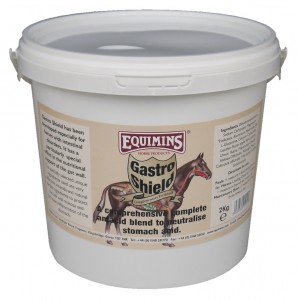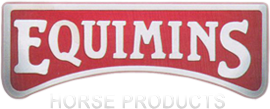What’s a gastric ulcer and how are they caused?
Gastric ulcers are caused by the horse’s sensitive stomach lining being exposed to digestive acid for too long.
If you think about the way the horse was ‘designed’, it all becomes clear. In the wild, horses grazed for many, many hours a day, hence horses are referred to as trickle feeders. Some people try and maintain this with their own horses, and it’s much easier to do with native types and those in low levels of work, as they don’t necessarily need extra calories. For competition horses and those that are stabled, a management regime could consist of two or three bucket feeds a day, with hay at intervals. The horse’s stomach doesn’t care too much for the more modern way his host lives, and continues to make stomach acid. As the acid isn’t being used for food, the exposure to the sensitive stomach continues…and so it goes on.
Diagnosis isn’t always straightforward and an endoscopy will be required to confirm the issue. Signs such as poor condition, an unwillingness to work and decreasing performance could suggest an ulcer, but it’s always worth speaking to your vet if you’re concerned, to get a proper diagnosis.
The management of gastric ulcers could mean a change in lifestyle as well as medication prescribed by a vet. Giving your horse access to an environment closer to his natural state, such as longer periods turned out, more forage and reduced concentrated feed can all help but, again, seek veterinary guidance if your horse has gastric ulcers.
 We developed Gastro Shield with sensitive stomachs in mind, to help maintain acid balance and support the cell wall mucosa of the stomach. We’ve used a comprehensive combination of proven ingredients that help to maintain acid balance, to create a supplement that’s suitable for foals and horses. To find out more about Gastro Shield, see the website.
We developed Gastro Shield with sensitive stomachs in mind, to help maintain acid balance and support the cell wall mucosa of the stomach. We’ve used a comprehensive combination of proven ingredients that help to maintain acid balance, to create a supplement that’s suitable for foals and horses. To find out more about Gastro Shield, see the website.

 Equimins specialises in producing natural horse supplies, products and supplements for the major areas associated with caring for a horse. All products are proudly made in the UK and excellent specification quality products are of paramount importance. Using this blog we want to share some of the knowledge we have gained through nearly 30 years of experience.
Equimins specialises in producing natural horse supplies, products and supplements for the major areas associated with caring for a horse. All products are proudly made in the UK and excellent specification quality products are of paramount importance. Using this blog we want to share some of the knowledge we have gained through nearly 30 years of experience. 


